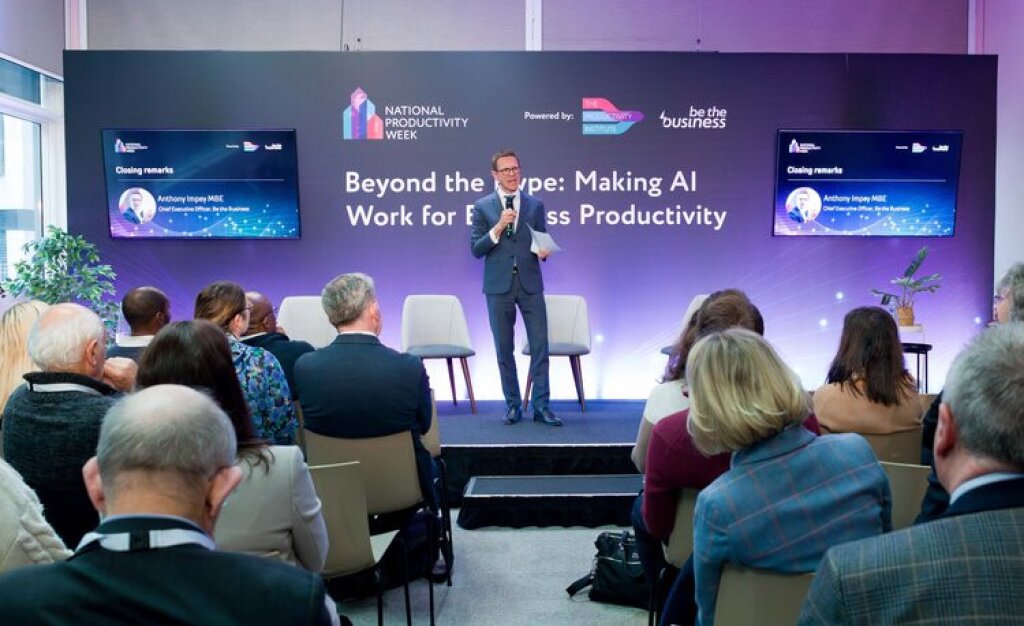It’s 4am in the morning. I’m lying in bed, wide awake, staring at the ceiling, worried about an issue in the business.
It’s an experience I’ve certainly had at different times of my career as an entrepreneur and business leader, and I’m sure anyone reading this has experienced the same. I’ve spoken to lots of business leaders who tell me that they spend lots of time ruminating on the ‘should have done this’ or ‘could have done that, frequently in the small hours, which leads to them to feel an acute sense of loneliness. It’s made so much worse when you find yourself abandoning your social life because you’re either too busy working or too tired to do anything other than work.
In the current economic climate, that sense of loneliness is magnified. Many business leaders employ others – colleagues who depend on the wage from your business to live their lives – and the awareness that your wrong decision could see them, in the worst-case scenario, out of a job is a lonely place. Similarly, while the pandemic led to some positive changes in our working lives, there is no doubt that working from home has deprived leaders – indeed, everyone – of the vital everyday connections and conversations they make with their people in the workplace. How can your colleagues pick up that you’re anxiously staring into the middle distance if your camera is off?
At Be the Business, we wanted to find out more about the current state of loneliness among leaders. Our findings were striking, but perhaps unsurprising. Nearly a quarter (23%) say they feel lonely making decisions and even more (26%) say they shoulder their responsibilities single-handed. Many tell us that economic pressures have made their jobs lonelier than ever.
We also know that this loneliness can have a deeper personal impact, affecting personal health as well as that of the business. More than a quarter (26%) report a decline in their mental health as a direct result of decision-making pressure.
This is something I’ve learnt first-hand in my conversations with business leaders across the UK. I remember one CEO of one rapidly growing, successful engineering business telling me about the anxiety and insomnia he had experienced and how taking the decision to get a business mentor meant he could sleep at night again.
I’ve been fortunate enough to work with mentors throughout my career who have helped me in similar situations. Earlier in my career, I made a deal with a renowned company, but it just wasn’t delivering a return. I agonised over why it wasn’t working – hadn't I done everything right? - but it took a conversation with my mentor realise that we’d simply been caught in an overnight shift in the market and nothing I could have done would have solved the situation. My mentor encouraged me to learn what lessons I could, put it behind me and get ready to face the next challenge. If I hadn’t been supported by my mentor in that moment, I would have struggled to give myself permission to dust myself off and look to the future.
There isn’t a ‘one size fits all’ approach to mentorship. It comes in many different forms, and mine have been both formal and informal.
For some business leaders, a partner or family member can provide the vital distance that they need to solve a problem or issue. Others will lean on trusted members of their senior leadership team or employees.
But there is real value in reaching outside of the firm or family for advice – someone who is able to tell you what you need to hear, not what you want to hear. For instance, when the leaders of big businesses share their experience with those in small businesses, both parties gain and grow as a result. Ad hoc advice can be successfully exchanged online through business communities and on LinkedIn, but a formal mentor and advisory matching service will provide solo business leaders with an ongoing, structured relationship.
We know this from our advisory boards and mentorship programmes, where team leaders and senior managers from successful firms work with smaller businesses. We also know that this collaboration can unlock wider productivity benefits for the economy. More than half of the mentored leaders in our programmes report improved productivity as a direct result.
It’s not just productivity that improves. Personally, I feel that using a sounding board has removed some of the loneliness of leadership, boosted my management skills and led to fewer sleepless nights. And it’s hard to put a price on that.
By Anthony Impey, MBE
CEO of Be the Business
Related
Actions speak louder than words when it comes to productivity policy
Celebrate small businesses by investing in productivity
AI has the potential to supercharge our productivity
Stay in the know
Subscribe to our monthly Insights newsletter to hear about our upcoming research, or browse the archive.



